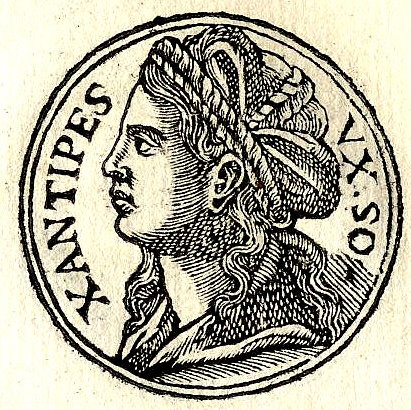|
Myrto
Myrto (; el, Μυρτώ; fl. 5th century BC) was, according to some accounts, a wife of Socrates. Sources The original source for the claim that she was Socrates' wife appears to have been a work by Aristotle called ''On Being Well-Born'',Athenaeus, xiii. 555D–556APlutarch, ''Aristides'', xxvii. 3–4Diogenes Laërtius, ii. 26 although Plutarch expresses doubt that the work is genuine. She was apparently the daughter, or, more probably, the granddaughter of Aristides. A different account of Xanthippe and Myrto is given in Aristoxenus's ''Life of Socrates'' written in the latter part of the fourth century BC that Aristoxenus asserts is based on first-person accounts by his father. This claims that Myrto was his legitimate wife and Xanthippe his mistress, whose child became legitimate. Although Diogenes Laërtius describes Myrto as Socrates' second wife living alongside Xanthippe, Myrto was presumably a common-law wife,Luis E. Navia (1985), ''Socrates, the man and his philos ... [...More Info...] [...Related Items...] OR: [Wikipedia] [Google] [Baidu] |
Xanthippe
Xanthippe (; , , ; 5th–4th century BCE) was an ancient Athenian, the wife of Socrates and mother of their three sons: Lamprocles, Sophroniscus, and Menexenus. She was likely much younger than Socrates, perhaps by as much as 40 years. Name Xanthippe means "yellow horse", from grc, ξανθός " blond" and "horse". Hers is one of many Greek personal names with a horse theme (cf. ''Philippos'' "Friend of Horses", ''Hippocrates'' "Horse-tamer", etc.). The ''hippos'' in an ancient Greek name often suggested aristocratic heritage. One additional reason for thinking Xanthippe's family was socially prominent was that her eldest son was named Lamprocles instead of "Sophroniscus" after Socrates' father Sophroniscus: the ancient Greek custom was to name one's first child after the more illustrious of the two grandfathers. Xanthippe's father is believed to have been named Lamprocles. If he was even more well-established in Athenian aristocracy than was Socrates' father, his name ... [...More Info...] [...Related Items...] OR: [Wikipedia] [Google] [Baidu] |
